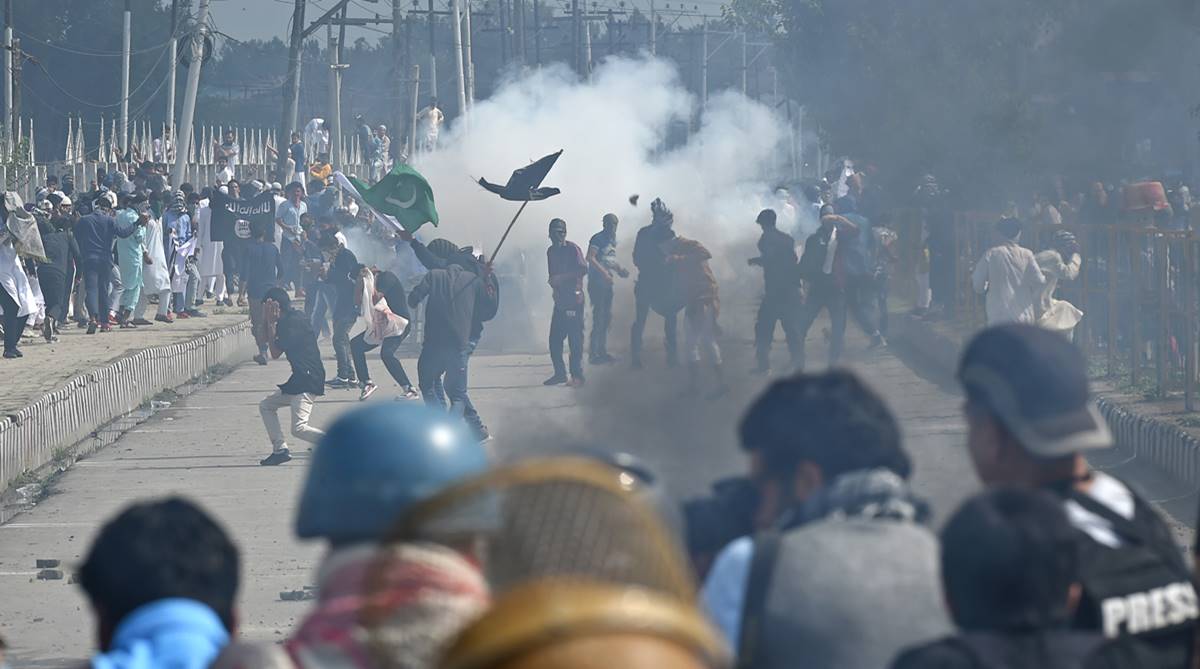When the celebrated Kashmiri IAS officer, Shah Faesal, resigned to ‘protest against the unabated killings in Kashmir, and lack of any sincere reach-out from the Union Government’, a large section of Indians were shocked at what they called his ‘ungrateful’ impetuosity. When the PDP president and former J&K Chief Minister, Mehbooba Mufti, visited the family of a slain militant, the non-Kashmiri polity was generally horrified and had frowned upon her ‘anti-national’ conduct. Perhaps both actions were driven by a sense of political ambition and they naturally riled against the sensibilities of those who tend to think in the fashionable absolutism of black-and-white. The reality is that India is a wounded civilisation and a tinderbox of various identities and emotions, bound by unsettled cartography that will always test the ‘relationship’ of its citizenry with the State.
This is the era of majoritarianism, hypernationalism, and intolerance towards these perceived historical wounds. The dominant trend is characterised by impatience and an immediate rejection of the idea of any contrarian perception. These pent up local perceptions, if left unaddressed, often lead to civic movements and then armed insurgencies, unless they are given a political platform of expression. India had historically vested its faith in its democratic impulses and insisted on offering these political platforms to those who felt marginalised, isolated and even to those who occasionally took up arms to articulate their disaffection.
Advertisement
However, India also has the rare distinction and track record of successfully overcoming multiple regional unrests of varied intensities, specifically Tamil nationalism in the South, Mizoram in the East, and Punjab in the North. Some regional movements have exacerbated into full-fledged militancy, whilst others were contained in due course of time. The singular reason for overcoming these movements was the political inclusion of the disengaged, especially those on the extreme fringe. Like all insurgencies, it was the composite package of security, administrative and socio-economic inputs that coincided with the political mainstreaming and expression of local concerns that ultimately addressed the situation. It certainly wasn’t painless or without a price. The ‘Indian soldier’ stood guard with a combination of restraint and bluntness, as required, without malice or an agenda. In the Indian context, the ultimate power flows from the expression of its citizenry. The armed forces are trained to fight the ‘enemy’ across the borders, not its own, within.
It is not generally known that the first Chief Minister of Mizoram was Laldenga, the founder of the armed insurgent group called the Mizo National Front. He had led a three-decade- long bloody secessionist war against the Indian State. In 1986, he negotiated the Mizoram Peace Accord and was sworn in as Chief Minister after taking an oath-to-office under the Indian Constitution. Today, Mizoram is amongst the most peaceful and progressive states under the Chief Ministership of Zoramthanga, who was earlier the second- in-command to Laldenga in the Mizo National Front.
The Tamil nationalist movement (Dravida Nadu) had ignited major civil and political unrest in the 1950s and Sixties. It went through its own cycle of vicissitudes, though the readily available political plank of Indian democracy ensured popular expression and mainstreaming by the Dravidian parties, that have held the popular mandate between the two principal Dravidian parties, ever since 1969.
The unrest in Punjab was essentially embedded in socioeconomic disaffection, coupled with mismanagement and political one-upmanship that eventually led to a cataclysmic and painful militancy. Ultimately in Punjab too, with the security factor, it was the expression and acceptance of certain grievances and local perceptions that led to the pathbreaking Rajiv- Longowal Accord in 1985. Since then, the Akalis of various denominations have retained political significance. Even the present Chief Minister of Punjab, Captain Amarinder Singh, had then joined the Shiromani Akali Dal in protest and even today as a Congressman, rightfully remains steadfast on matters of regional concern and perceptions. Time and again, deliberate ‘inclusivity’ of the emotionally disenfranchised citizenry has been the secret.
As a former combatant who has fought and commanded troops in such places as insurgency- infected Mizoram, Punjab and the J&K, emotions relating to ‘fallen-brothers’ are raw, internalised and part of a sacred covenant that needs no politicising or contexualising with any convenient or insincere partisan objective. Sadly the ‘Soldier’ is getting appropriated and invoked to cover an ingenuity paralysis and inaction, as often as not due to ‘electoral implications’.
The ‘Soldier’ has done, and will do his duty as mandated by the Constitution for he or she swears solely by the Constitution of India and not to a political party, irrespective of personal preferences. Surely, the armed forces have steadily been denuded in the national narrative, but that is a separate subject which is actually ignored by all parties in the political spectrum.
Jammu and Kashmir is above all a major security issue, and not just a military issue. History has recorded the glaring absence of mainstreaming, accepting and/or rejecting the democratic inclusion, as was done in all other disturbed areas. An honest discourse on local issues and perceptions, such as they exist, and without the other eye on the rest of the country would be a major step forward from the current deadlock. In this background, efforts to ‘voice’ and mainstream concerns as done by a Shah Faesal or Mehbooba Mufti needs to be accepted. Their act of redressal of and deference towards local sensitivities needs to be understood as part of democratic certitudes. India needs to hear the Kashmiri perspective in totality, beyond questioning the intent and tact of these individuals. Healing is a slow process of emotional inclusion of the ‘other’. The contours of the Constitution are wide enough to accommodate all, but increasing hypernationalism strips the State of options. The inclusive refrain of Insaniyat, Jamhoriyat, Kashmiriyat beckons, and history shows that a nation does not get weaker by heeding to it. The ‘enemy’ failed in Mizoram and Punjab. J&K can be no different.
(The writer IS Lt Gen PVSM, AVSM (Retd), Former Lt Governor of Andaman & Nicobar Islands & Puducherry)









